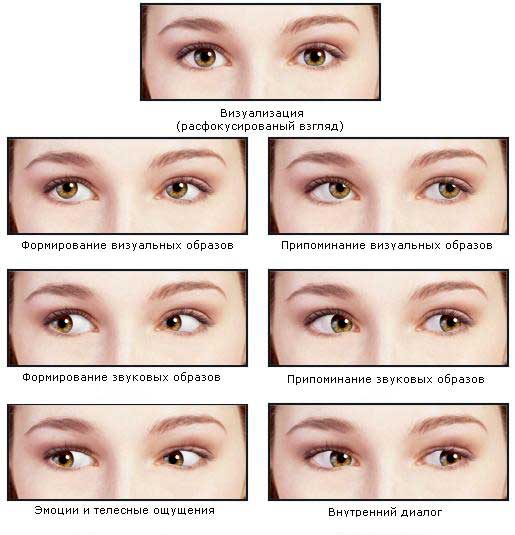Effective methods for detecting lies.
Often, during a conversation with another person, you cannot understand whether he is telling the truth or lying. And you do not want to be deceived by your interlocutor. So is it possible to determine whether a person is telling the truth or frankly lying to you? Are there any methods?
Of course, there are methods for distinguishing lies from truth. Moreover, one does not need to be a professional psychologist in order to quickly see a liar and almost accurately determine the falsity of his messages and arguments.
You just need to carefully observe the behavior of a person, analyze what he says, fix a clear dissonance between his words and gestures. In this case, you need to trust your eyes more than your ears.
How to determine by the external signs of a person that he is lying?
Identifying a lie is easy and simple by observing facial expressions, listening to the voice and spoken words, and also paying special attention to the gestures and postures used by the person lying to you. Here are some examples.
One person tries to appear before you extremely honest, the opponent of any lie. Therefore, he constantly repeats: “honest word”, “trust me”, “I swear to you”, “this is one hundred percent true.” He does not believe himself and tries to convince himself.
Another, in order not to lie, will try in every possible way to evade the topic under discussion, from the direct questions being asked. To this end, he will convince you that he is not aware of what is at stake. Or he just doesn't want to talk about it.
Sometimes a liar switches to outright rudeness, may begin to be rude, rude, so as not to talk about what he will have to lie about. In such cases, it can come to screams, scandal and even assault.
Remember that an honest person, on the contrary, will try to tell you everything in detail, defend his position, and explain the circumstances of the case in detail. In some cases, he may simply be deliberately mistaken, but not lie at all.
Often you have to deceive in the name of your own salvation or shielding a loved one. This is the so-called "lie for good". This must have happened to each of us at home in the family and at work with colleagues.
Some try to close their body, others start scratching their noses, others look around. As you know, a lot about a person can say his eyes. The liar will try not to look you straight in the eyes, will take his to the side, run around with his eyes.
If you ask him some specific question, he will suddenly start to get lost, stutter, stutter, blush, because a false legend, as a rule, is not thought through to the end and has to be thought out on the go.
A lying person feels emotionally uncomfortable, his behavior is unnatural, he may be too active or too passive. If you know the interlocutor well, then you can easily determine that he is lying.
How to recognize a lie by the eyes?

1) Psychologists have long noticed that a lying person, as a rule, looks away from the interlocutor to the left, and then lowers them down. So he tries to find the right words or invent images in order to lie.
If you notice such behavior behind your interlocutor, there is reason to believe that he is insincere with you. But it is not yet an established fact that he frankly lies to you. We need to continue monitoring his behavior.
2) If during a conversation a person raises his eyes up, then he is trying to isolate and describe images from visual or visual memory. If he turns his head to the right or left side, then he is working with auditory or auditory memory.
If your interlocutor lowers his head down, it means that he wants to concentrate and carefully controls everything that is said. Watch him carefully, it is at this moment that he can begin to invent and voice lies.
3) It is important to fix the first reaction of the interlocutor to the question asked to him. If at the same time he begins to roll his eyes up and to the right, or lowers them down and to the left, then he is trying in a panic to come up with some acceptable false legend.
It should be remembered that a professional liar, i.e. a person who lies constantly, has become adept at this business, and even has good acting skills, it is very difficult to catch a lie in his eyes.
4) If you have repeatedly encountered the fact that a particular interlocutor is lying to you, then try to remember how he behaves in this case. This will help you in the future to convict him of a lie.
You should remember the whole strategy of his behavior: how he “runs” with his eyes, what phrases he utters, in which direction he looks, how he behaves in general. This information will help you in the future not to become a victim of a liar.
 Every person knows how to cheat. It starts with a childish tendency to fantasize, and adults just get used to lying to each other over the course of life, even on trifles. Some do it without thinking.
Every person knows how to cheat. It starts with a childish tendency to fantasize, and adults just get used to lying to each other over the course of life, even on trifles. Some do it without thinking.
However, the deceived party suffers from false information, receives psychological trauma: parents deceive children, and children of parents, spouses lie to each other, and friends ruthlessly misinform best friends.
A story made up on the go is just as easily forgotten. If you ask a liar a second time on the same topic, he will come up with a completely or partially different version. And you will realize that you have been blatantly deceived.
Sometimes a constant lie turns into a real pathology. In psychology, there is the concept of a pathological liar. This disease destroys the consciousness of the patient, he himself ceases to understand where is the truth and where is the lie.
Let's figure out what a lie is, and when can it become a problem not only for others, but also for the person lying, and turn into a difficult-to-treat pathology? A lie is false information that is expressed by one person to another.
In modern psychology, there are three types of people who are prone to lying.
1) A person who wants to always look smarter than everyone else in society. He likes to take an active part in various discussions, proving to his interlocutors that they have a good classical education and great life experience.
To reveal his lies, it is enough to ask a couple of simple clarifying questions on the topic under discussion. A lying person will immediately try to answer specific questions with general phrases, and it will become clear that he is deceiving.
2) A person who lies out of selfish motives tends to make a lot of different, sometimes simply inappropriate compliments. In this way, he wants to lull the vigilance of his interlocutor and achieve his own selfish benefits from him.
This is how scammers of all stripes work, deceiving gullible and suggestible citizens. These are deceivers in the style of Sergei Mavrodi. Only your own life experience and intellect can help here.
3) There are people who have the ability to deceive from birth. They lie "for the soul", perceiving lies as art. As a rule, they have good acting skills and are able to fool anyone.
Often there is no protection from them. Such a liar will play a whole performance in front of you, rob you to the skin, and you will like it. Playing, for a moment he himself believes in what he says. These are liars in the style of Ostap Bender.
4) Pathological liars deceive both people and themselves. They invent their own life (test pilot, confidant of the President, son of the Prosecutor General) and believe in their own fiction. In real life, such liars, as a rule, have a low social status.
If you demand proof of his words from a pathological liar, he will immediately tell a beautiful story about how he was forgotten or confused in the maternity hospital, intentionally deprived of his status, or simply burned documents at the behest of the Kremlin.
How to recognize a lie?
Psychologists have developed a number of methods that should be used to understand whether a person is telling you the truth or simply lying. These methods do not give a 100% guarantee, but they undoubtedly provide serious assistance.
The first method: to detect lies by the answer
If a person, after a question has been raised, completely or partially repeats it or is silent for several minutes, it means that he is considering how to answer correctly so as not to harm himself or other people.
This behavior indicates that he is insincere with you and most often, as a result, answers falsely. A truthful person, without hesitation, lays out all the information he has on your question.
The second method: detect lies by the absence of an answer
If, in response to a question, your interlocutor tells a joke or otherwise diverts the conversation, it means that he does not want to share with you, he has something to hide. According to the rules of etiquette, you should appreciate his wit and laugh.
If you continue to insist on getting an answer, you may be considered a bore. This is such a well-known tactic of not lying, but also not telling the truth, often used by liars in society.
The third method: identify lies by behavior
Instead of an answer, you get a nervous reaction from your interlocutor. He starts coughing, scratching, can dramatically change the pace of his speech, etc. This suggests that he is psychologically preparing to lie to you.
You should be careful with such a person, because. you can really become a victim of deception. Although such behavior is not characteristic of a professional liar, after all, he has long been accustomed to lying and has his own benefit from this.
Fourth method: detect lies by gestures
Sometimes the interlocutor during the conversation automatically begins to make specific gestures: (scratching the back of the head, touching his face, etc.). This suggests that he is trying to subconsciously fence himself off from you.
Sometimes he backs away from the interlocutor, shifts from foot to foot, tries to move away. This means that at the subconscious level, he understands that now he will have to tell a lie. And this makes him uncomfortable.
Carefully study the behavior of your relatives and friends at a time when, according to your assumptions, they are lying. This will help you not to spoil your relationship with them in vain, but simply to know when they told a lie and protect yourself from it in a timely manner.